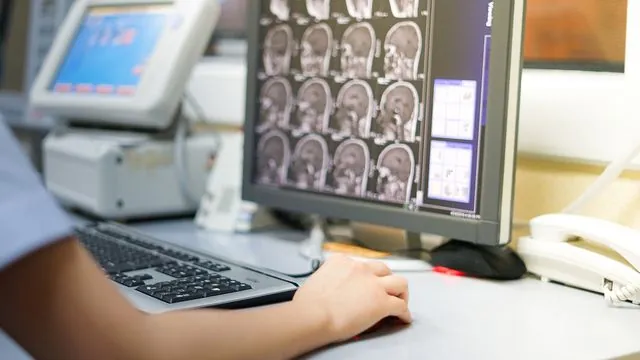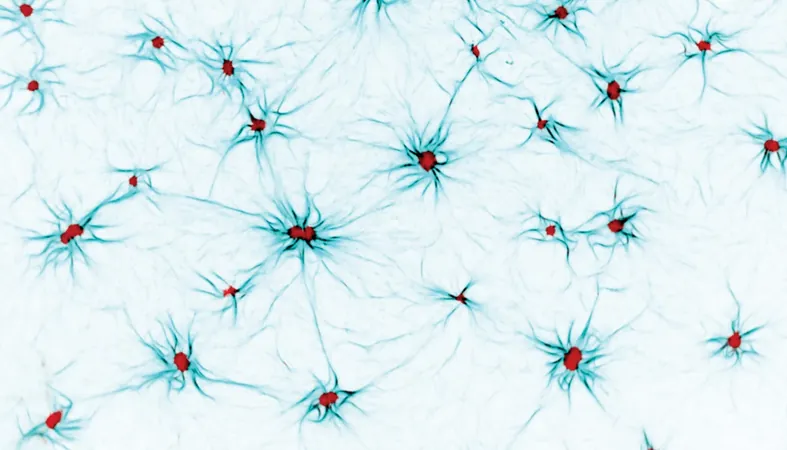
Revolutionary Brain Imaging Technique Uncovers Why Parkinson's Drug Works Differently for Patients
2025-06-30
Author: Noah
Unlocking the Mysteries of Levodopa's Effectiveness
A groundbreaking study published in the prestigious journal Movement Disorders has unveiled crucial insights into the widely used Parkinson’s medication, levodopa. While this drug has been a game-changer for many patients by alleviating movement symptoms of the neurodegenerative disorder, its effects can vary significantly among individuals.
Understanding the Brain's Response to Treatment
To get to the bottom of these discrepancies, researchers from Simon Fraser University (SFU) collaborated with experts from Karolinska Institute in Sweden. Utilizing state-of-the-art magnetoencephalography (MEG) technology, they delved into how levodopa impacts brain signals. According to Alex Wiesman, an assistant professor at SFU, Parkinson’s disease is rapidly becoming one of the most prevalent neurodegenerative disorders globally, emphasizing the urgent need for tailored treatment strategies.
A Closer Look at Brain Activity
The study involved monitoring the brain signals of 17 patients before and after taking levodopa. MEG is a cutting-edge, non-invasive technology that detects the magnetic fields generated by the brain's electrical activity, providing valuable insights into various brain disorders.
Revealing 'Off-Target' Effects
Wiesman and his team discovered something fascinating: levodopa sometimes triggers activation in brain regions that may not be beneficial, termed 'off-target' effects. This can hinder the drug's overall efficacy, meaning some patients experience lesser benefits. By identifying these unintended brain activations, clinicians can better tailor treatment plans.
Towards Personalized Medicine
This research opens doors to more personalized approaches to prescribing medications for Parkinson’s. Wiesman believes that understanding each patient's unique brain signaling can help optimize dosages, explore alternative medications, and enhance therapeutic outcomes. The future may see a shift towards precision medicine, making treatments more effective for individual patients.
Broader Implications for Brain Disorders
The innovative methods developed in this study are not limited to Parkinson’s disease; they can also be applied to any medication that influences brain function. With MEG being unique to SFU’s ImageTech Lab in western Canada, Wiesman is excited about the unprecedented opportunities this technology provides for a deeper understanding of brain activity.
Expanding Research Horizons
Looking ahead, researchers aim to apply their findings to larger patient groups and adapt the techniques for more accessible brain imaging methods, such as electroencephalogram (EEG). Their ultimate goal is to make these advanced insights available to a wider range of patients, significantly enhancing the management of Parkinson’s disease.









 Brasil (PT)
Brasil (PT)
 Canada (EN)
Canada (EN)
 Chile (ES)
Chile (ES)
 Česko (CS)
Česko (CS)
 대한민국 (KO)
대한민국 (KO)
 España (ES)
España (ES)
 France (FR)
France (FR)
 Hong Kong (EN)
Hong Kong (EN)
 Italia (IT)
Italia (IT)
 日本 (JA)
日本 (JA)
 Magyarország (HU)
Magyarország (HU)
 Norge (NO)
Norge (NO)
 Polska (PL)
Polska (PL)
 Schweiz (DE)
Schweiz (DE)
 Singapore (EN)
Singapore (EN)
 Sverige (SV)
Sverige (SV)
 Suomi (FI)
Suomi (FI)
 Türkiye (TR)
Türkiye (TR)
 الإمارات العربية المتحدة (AR)
الإمارات العربية المتحدة (AR)